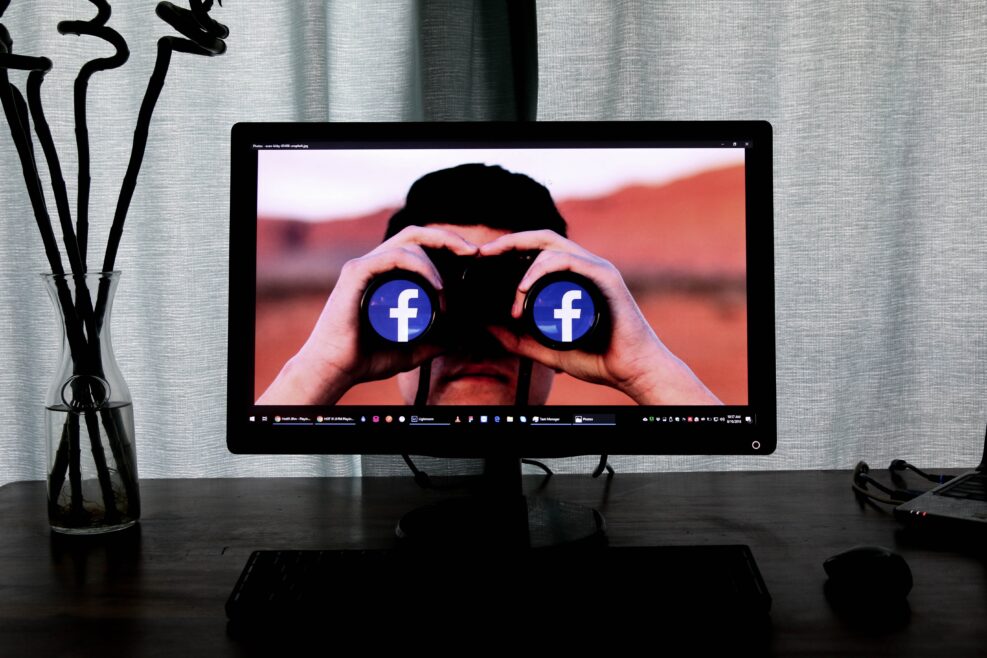
TagPrivacy


Meta Fined Over 1.3 Billion
The EU is penalizing the tech giant for shipping data across the AtlanticEuropean Union regulators have fined Meta over a billion dollars for sending users’ data to the United States. Many companies operate using a free flow of data across the Atlantic, so the ruling will complicate other companies’ modes of business. Sam Schechner reports, The steep fine represents a step change from EU privacy regulators, who are increasing their enforcement of the GDPR, the bloc’s privacy law, some five years after it came into effect. A board of EU regulators has taken more control over cross-border decisions—and has insisted on bigger fines, people familiar with the deliberations say. -Sam Schechner, Facebook Owner Meta Fined $1.3 Billion Over Data Transfers to U.S. – WSJ Meta is not pleased with the decision, unsurprisingly, Read More ›

The Brave Search Engine Survives. So Does Privacy Still Matter?
Despite Google’s overwhelming dominance, Brave clocked 2.5 billion searches since this time last yearLast year, we wrote about the Brave search engine, headed up by Mozilla pioneer Brendan Eich. Brave Search offered the first true alternative to Google since Bing by introducing a third English language index and protecting user privacy. A nice idea, many have thought, but who really cares? So what if Big Tech makes largely unaccountable billions from marketing our information, as long as the social media services it provides remain free? So perhaps surprisingly, Brave is hanging on. Tech maven Jacob Carpenter noted recently at Fortune that, while Google owns 92.5% of the search market business according to StatCounter, that number hasn’t changed much over a decade. And Brave is reporting 2.5 billion searches from its current search engine’s Read More ›

Governments Worldwide Pressured Twitter to Censor in 2020
World governments demanded the removal of content from 199 journalist sourcesTwitter released its latest Transparency Report on Wednesday, revealing that in the latter half of 2020, there was a 26% increase in requests from international governments to remove posts from verified journalists. The report tracks various data from July 1 to December 31, 2020, including global legal requests and Twitter Rules enforcement. Global legal requests are divided between information requests and removal requests. Twitter received over 14,500 global government information requests, and over 38,500 global legal demands to remove content. According to the report, “94% of the total global volume of legal demands originated from only five countries (in decreasing order): Japan, India, Russia, Turkey, and South Korea.” Of the information requests received, Twitter announced that they “produced some or Read More ›

Nevada Announces New Cities in State To Be Run By Big Tech
The zones promise technological freedom, but what are the dangers to handing so much political power to big corporations?Nevada is courting technological business by offering them the opportunity to develop cities independent of government regulation. In his State of the State address on January 19th, Nevada Democratic Governor Steve Sisolak announced proposed legislation to create “Innovation Zones” in order “to jumpstart the state’s economy by attracting technology firms.” The long-term vision for these Innovation Zones is a county independent of local government, run solely by a technological corporation for the purpose of pursuing advanced technology without the red tape of bureaucracy. The proposed legislation draft calls “traditional forms of local government” “inadequate” in their ability “to provide the flexibility and resources conducive to making the State a leader in attracting and retaining new forms and types of businesses…” Read More ›

AT&T CTO Says, Yes, You Can Live Without Your Smart Phone
At COSM 2019, Jay Richards interviewed AT&T CTO Andre Fuetsch (the guy who says your smart phone will disappear). Is that true? And how will we live? From the interview: Andre Fuetsch: We are now on the brink of being able to connect many, many more things than we’ve ever seen before. And just by the fact of being able to connect more things … look at the more traditional wireless networks that we’ve had in the preceding generations. It frankly was just about connecting phones, right? “Some were sort of dumb phones, some were more feature phones. Some are now obviously more smartphones. And these were really more of kind of a one to one relationship with people. 5G, Read More ›

Google’s Secret Health Data Grab: The Whistleblower Talks
This is the fourth whistleblower in the last eighteen months“The decision came to me slowly, creeping on me through my day-to-day work,” we are told, until it came down to “how could I say nothing?”
Read More ›
Your smartphone will disappear, says AT&T CTO
New 5G computing will introduce an era of ever smarter wearable devices, according to Andre FuetschFuetsch asks us to think of 3G (2001) and 4G (2010) internet as the difference between a junior high school rock band and a high school rock band: “The high school band is a lot louder and a lot faster.” And 5G? “It is a 40-piece orchestra. A wide spectrum of abilities but tight structure and control.”
Read More ›
Should You Pay For a Virtual Private Network (VPN)?
Here's what a VPN can and can't do for youIn some cases, specifically when you are using public wireless services, using a VPN can add measurably to your privacy and security. But VPNs are not a “silver bullet” in solving the many security and privacy issues users face today.
Read More ›
You Think You Have Nothing To Hide?
Then why are Big Tech moguls making billions from what you and others tell them?The bottom line is this: if you think you don’t have anything to hide, then you don’t understand how the modern data economy really works, nor the impact of being caught in a riptide of public opinion.
Read More ›
Is Data Privacy a Luxury Now?
In an age of constant connectedness and digital monitoring, access to privacy is becoming the new digital divide. Can you afford it?The people most likely to know how to protect their privacy are the well-informed. In an information society in the free world, as an information analyst notes, “well-informed” tends to correlate with well-educated (which in turn correlates with being better off).
Read More ›
Why You Can’t Just Ask Social Media To Forget You
While we now have a clear picture of the challenges current social media pose to peoples and cultures, what to do is unclearStan Horaczek explains how you can download what social media and information brokers know about you but, he cautions, “Set aside lots of time and extra hard-drive space.”
Read More ›
Ad Exec Quit the Industry Over Big Tech’s Relentless Snooping
He was shocked by the brazen attitude to invasion of privacy
Your Phone Is Selling Your Secrets
You’d be shocked to know what it tells people who want your moneyBig tech companies have an ambiguous relationship with online invasions of privacy. The companies may be able to make much more money selling information about you than you would pay them to use their medium.
Read More ›
AI Dangers That Are Not Just Fake News
Total surveillance should worry us more than an AI news writing machineThose who control a new communications technology typically have a great advantage over those who don’t—whether that technology is an alphabet, an abacus, a printing press, a telegraph, a telephone, or a software communications program.
Read More ›
Exporting and Securing Technologies of Today and Tomorrow
U.S. Export Control and Research EspionageTechnology is vital in commerce and war. Corporations spend billions in development and don’t want to get ripped off. Technology and AI, more than ever, determine military superiority. What are the laws that protect technology and how are they enforced? Show Notes 01:20 | Introduction; Daniel M. Ogden, J.D. 03:06 | Reasons for protected technology 04:00 | Determining what needs Read More ›

Your Phone Knows Everything Now
And in a world where no data is anonymous, yours may be sold to the highest bidder
3: With Mind-Reading AI, You Will Never Have Secrets Again!
AI help, not hype, with Robert J. Marks: Did you read about the flap they had to cut out of a volunteer’s skull?The Daily Mail is the United Kingdom’s second largest circulation daily. A headline from the webpage screams: No more secrets! New mind-reading machine can translate your thoughts and display them as text INSTANTLY! Not a lot of nuance there. The story continues on a tidal wave of hyperbole, • Researchers say they have developed a machine that can translate our thoughts • The astonishing machine will analyse what you are thinking and display it as text ending with a charitable hope: • Scientists hope that the machine can be used by people who are unable to speak The reality is that AI can read your mind for a few words repeated often if you have a flap cut out of your skull and Read More ›

Life after Google: More private and more profitable?
Reviewing Gilder’s Life after Google, Ralph Benko asks, If our attention is worth billions, shouldn’t we market it?